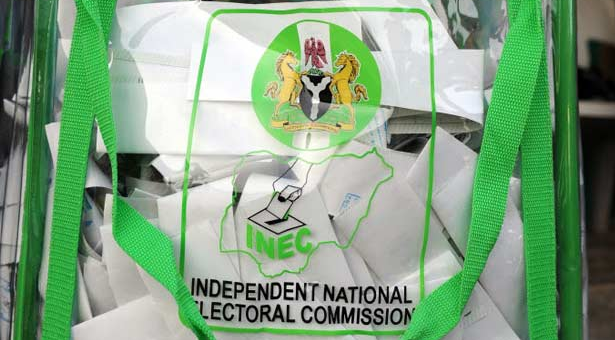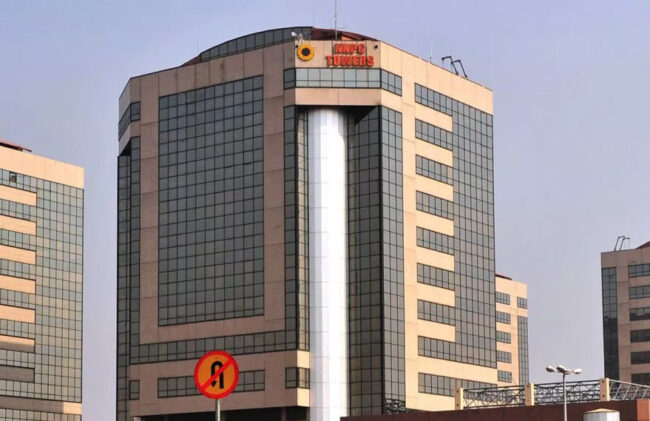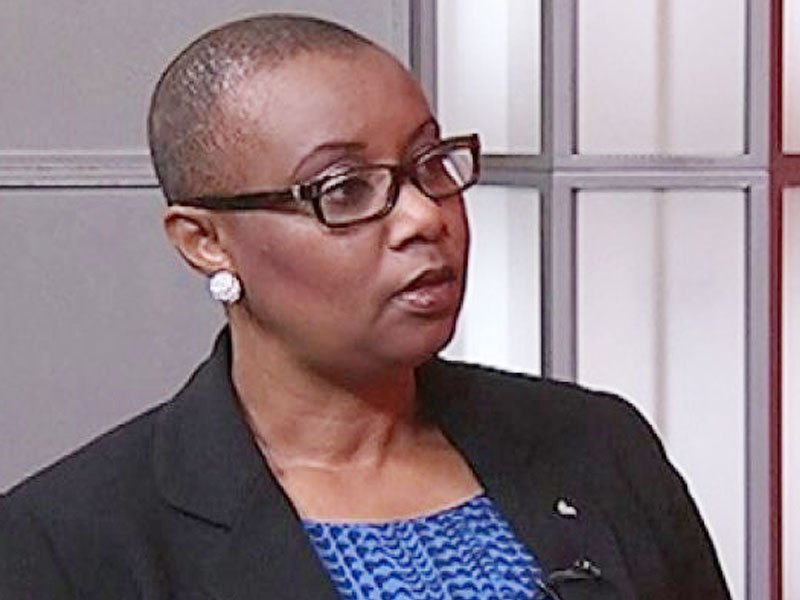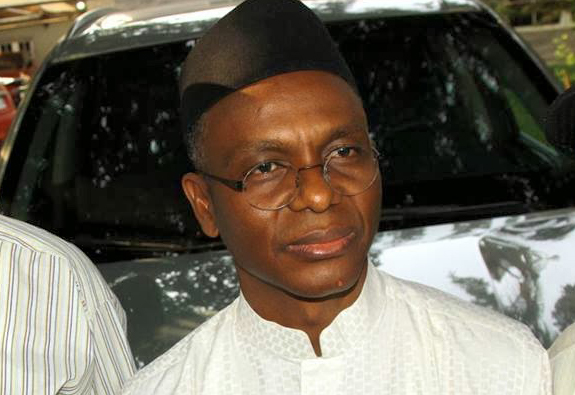Even though he led Nigeria for a little less than 36 months, late former President Umar Yar’ Adua will remain one of the few Nigerians with most respect for democratic ethics in history.
Having ascended office on the strength of evidently flawed elections, which he would have won anyway, Yar’ Adua, for the first time in the history of Nigeria and definitely to the chagrin of those who superintended over the travesty that the 2007 elections were, owned up to their rotund imperfection.
Nigerians were officially put on notice that the elections might be massively compromised. At one of the campaign outings of the then ruling Peoples Democratic Party (PDP), former President Olusegun Obasanjo, warned that the election was going to be a “do or die affair.”
He got an accomplice in officials of the professor Maurice Iwu led Independent National Electoral Commission(INEC) and desperate politicians who had no other consideration that feathering of their own nests, so the elections lived up to Obasanjo’s threat.
Advertisement
Yar’Adua, candidate of his PDP, was declared winner but not without epoch-making rigging, violence, theft of ballot boxes and intimidation of the electorate. Some foreign observers were quoted as saying that they had never seen an election so grandly manipulated, the desperation of the ruling party was clear to all, even without Yar’Adua conceding.
But it is not the tradition of Nigerian politicians, including those ones who torment us with their progressive credentials to admit to the games that they play with our votes, even when they perpetrate these crimes before our very eyes. Amongst Nigerian politicians, there are those who believe so much in their own hype that they do not see why they should lose elections even when they have not worked to win; there are those who would work to win but go ahead to patch it at the bottom with manipulations and only a negligible honest ones.
This is why elections in Nigeria have always never been without disaffection. Partisan politics and the power that it yields is rather than being an avenue for service, a meal ticket for the preponderance of our politicians, hence it has become a must win in most situations.
Advertisement
And in winning at all cost, partisans have devised all sorts of ways to manipulate the will of the people, by force and connivance with the electoral body. This is why in the history of elections, there have only been two episodes of considerable satisfaction that the elections reflected the desires of those who cast their votes. But even on these occasions, those on the field would tell you that the elections did not go without significant lapses and attempts at manipulations.
During the June 12, 1993 elections which observers still describe as the most free and fair so far, politicians still tried their hands. Of course the system manifestly bested them to reflect the will of the majority but the government of the day was in the wings waiting to subvert the process. That resulted in the annulment of the election in which late Bashorun MKO Abiola was on the way to being elected as President.
The second election that has received acclaim is the 2015 elections. And here, you will wonder whether the elections would have had that level of acceptance if the results were different! The symbolic loss of an incumbent to a relatively infant opposition machinery simply covered the obvious multitude of electoral sins!
Truth is those elections were anything but perfect. In fact, many Nigerians still attempt to impeach claims that professor Attahiru Jega, then head of the INEC was impartial and as successful at the job as widely imagined.
Advertisement
The inability to evenly distribute the prerequisite permanent voters’ card to the effect that millions of eligible voters were disenfranchised is an indelible stain on the sanctity of those elections. In addition to that are reports of technical hitches that gave the latitude for manipulations, massive underage voting, propped up and unexplainable figures forming part of final results, which was triggered by the resort to manual accreditation in a lot of instances and ultimately, alleged thumb-printing of ballot papers by desperate politicians.
While one must agree that the inability of an incumbent administration to manipulate the electoral body was a significant milestone in the history of electoral practices in Nigeria, we must ponder on how much of this independence has endured. One is persuaded to suggest that success in the management of elections is not just about how much is achieved with a particular event but the sustainability of the reforms that engendered the said accomplishment.
It does not seem that the professor Mahmood Yakubu leadership of INEC has been able to inspire this confidence in Nigerians from elections that it has conducted so far.
There is the initial wave of inconclusiveness in Kogi, Bayelsa, Osun, FCT, Imo, Nasarawa and Rivers states where some elections are still outstanding.
Advertisement
In Edo state, there were allegations of blatant financial inducements, violence, ballot snatching, ballot stuffing and INEC’s everlasting logistic problems.
There is also the confusion created over which candidate was qualified to represent the PDP and the eventual denial of the candidate an opportunity to share his vision with the people in Ondo state.
Advertisement
In all, given elections held in the past two years, Yakubu has been unable to heal INEC of its perceived incompetence and subservience and this has increased the level of citizen’s distrust in the body.
I am of course aware of the recent launch of INEC’s 2017 – 2021 strategic plan, which is not yet available for perusal, but one is mindful of the fact that Nigeria has never been short of plans and strategies.
Advertisement
While we have an abundance of strategic projections on paper, implementation of this plan is where INEC needs a lot of caution.
The most vital credential anyone heading a pivotal institution with immense power of an electoral body should have is character, impartial relationship with cross interests and a desperate determination to extend the frontiers of public good. The history and performance of our electoral bodies since independence has not demonstrated absolute fidelity to such ideals. True, there are individual of conscience, intellectual discipline and nonpartisan mien that have attempted to make a difference but the desperation of people of power would always attempt to intervene at critical junctures, which is why a strong institution ever ready to innovate is critical.
Advertisement
To succeed, Yakubu will, therefore have to continue to demonstrate unique openness, a non-partisan outlook, incredible firmness and a disposition far above the divisive and polarising tendencies that slow down Nigeria’s democratic growth.
Now, that we are have having hints of massive compromise of INEC personnel, the commission will have to take another look at the remuneration of its staff, permanent and ad hoc. It must also consider the scientific identification of the errors and flash points of the past as well as a periodic sensitisation of the public on election processes.
INEC has released the time table for the 2019 elections but more than 90 percent of the resident commissioners are yet to be appointed because of the dispute between the executive and legislative arms of government. The All Progressives Congress federal government would also do well to sort this out in the interest of public confidence.
It is also important for INEC to be continually mindful of the avaricious character of our political actors, the wobbly political structure and massive poverty that is fast defining the identity of our country and work with civil society organisation to reduce the tendency for the compromise of elections.
Currently, political actors in Anambra, Ekiti and Osun states are on the train again, amplifying their prospects and intermittently expressing doubts about the neutrality of the electoral body, INEC must do everything to salvage its image and get Nigerians to trust it again.
Nigerians should begin to see elections not as war but as a celebration of their democratic right to choose their leaders and vote out leaders who may not have satisfied their aspirations. Although the current administration is just midstream into its term, now is the time to begin to give Nigerians the confidence that, if it fails on the promises it made to the people, it would be possible to reject it through the ballot. This INEC must assure us, in spite of the desire of politicians, of the end of do or die politics in Nigeria.
Follow me on Twitter @niraadedokun
Add a comment







